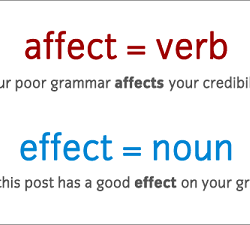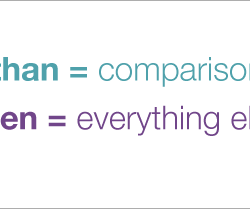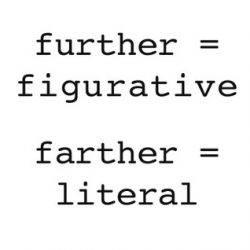Affect vs. Effect
One of the most common errors in English is to confuse the words “affect” and “effect”. These words have two completely different meanings. One is a verb while the other is a noun. If you mix them up, you will only confuse whomever you’re writing to. The Difference Between Affect and Effect “Affect”, with an[…]





